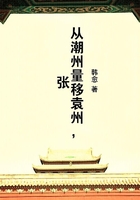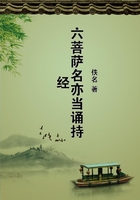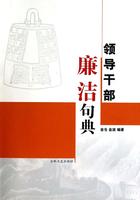The cheapening of any article in common use almost immediately results in a largely increased demand for that article.Take the case of shoes, for instance.The introduction of machinery for doing every element of the work which was formerly done by hand has resulted in making shoes at a fraction of their former labor cost, and in selling them so cheap that now almost every man, woman, and child in the working-classes buys one or two pairs of shoes per year, and wears shoes all the time, whereas formerly each workman bought perhaps one pair of shoes every five years, and went barefoot most of the time, wearing shoes only as a luxury or as a matter of the sternest necessity.In spite of the enormously increased output of shoes per workman, which has come with shoe machinery, the demand for shoes has so increased that there are relatively more men working in the shoe industry now than ever before.
The workmen in almost every trade have before them an object lesson of this kind, and yet, because they are ignorant of the history of their own trade even, they still firmly believe, as their fathers did before them, that it is against their best interests for each man to turn out each day as much work as possible.
Under this fallacious idea a large proportion of the workmen of both countries each day deliberately work slowly so as to curtail the output.Almost every labor union has made, or is contemplating making, rules which have for their object curtailing the output of their members, and those men who have the greatest influence with the working-people, the labor leaders as well as many people with philanthropic feelings who are helping them, are daily spreading this fallacy and at the same time telling them that they are overworked.
A great deal has been and is being constantly said about "sweat-shop" work and conditions.The writer has great sympathy with those who are overworked, but on the whole a greater sympathy for those who are under paid.For every individual, however, who is overworked, there are a hundred who intentionally underwork -- greatly underwork -- every day of their lives, and who for this reason deliberately aid in establishing those conditions which in the end inevitably result in low wages.And yet hardly a single voice is being raised in an endeavor to correct this evil.
As engineers and managers, we are more intimately acquainted with these facts than any other class in the community, and are therefore best fitted to lead in a movement to combat this fallacious idea by educating not only the workmen but the whole of the country as to the true facts.And yet we are practically doing nothing in this direction, and are leaving this field entirely in the hands of the labor agitators (many of whom are misinformed and mis-guided), and of sentimentalists who are ignorant as to actual working conditions.
Second.As to the second cause for soldiering -- the relations which exist between employers and employees under almost all of the systems of management which are in common use -- it is impossible in a few words to make it clear to one not familiar with this problem why it is that the ignorance of employers as to the proper time in which work of various kinds should be done makes it for the interest of the workman to "soldier."The writer therefore quotes herewith from a paper read before The American Society of Mechanical Engineers.in June, 1903, entitled "Shop Management," which it is hoped will explain fully this cause for soldiering:
"This loafing or soldiering proceeds from two causes.First, from the natural instinct and tendency of men to take it easy, which may be called natural soldiering.Second, from more intricate second thought and reasoning caused by their relations with other men, which may be called systematic soldiering.
"There is no question that the tendency of the average man (in all walks of life) is toward working at a slow, easy gait, and that it is only after a good deal of thought and observation on his part or as a result of example, conscience, or external pressure that he takes a more rapid pace.
"There are, of course, men of unusual energy, vitality, and ambition who naturally choose the fastest gait, who set up their own standards, and who work hard, even though it may be against their best interests.But these few uncommon men only serve by forming a contrast to emphasize the tendency of the average.
"This common tendency to 'take it easy' is greatly increased by bringing a number of men together on similar work and at a uniform standard rate of pay by the day.
"Under this plan the better men gradually but surely slow down their gait to that of the poorest and least efficient.When a naturally energetic man works for a few days beside a lazy one, the logic of the situation is unanswerable.'Why should I work hard when that lazy fellow gets the same pay that I do and does only half as much work?'
"A careful time study of men working under these conditions will disclose facts which are ludicrous as well as pitiable.
"To illustrate: The writer has timed a naturally energetic workman who, while going and coming from work, would walk at a speed of from three to four miles per hour, and not infrequently trot home after a day's work.On arriving at his work he would immediately slow down to a speed of about one mile an hour.When, for example, wheeling a loaded wheelbarrow, he would go at a good fast pace even uphill in order to be as short a time as possible under load, and immediately on the return walk slow down to a mile an hour, improving every opportunity for delay short of actually sitting down.In order to be sure not to do more than his lazy neighbor, he would actually tire himself in his effort to go slow.
"These men were working under a foreman of good reputation and highly thought of by his employer, who, when his attention was called to this state of things, answered: 'Well, I can keep them from sitting down, but the devil can't make them get a move on while they are at work.'















